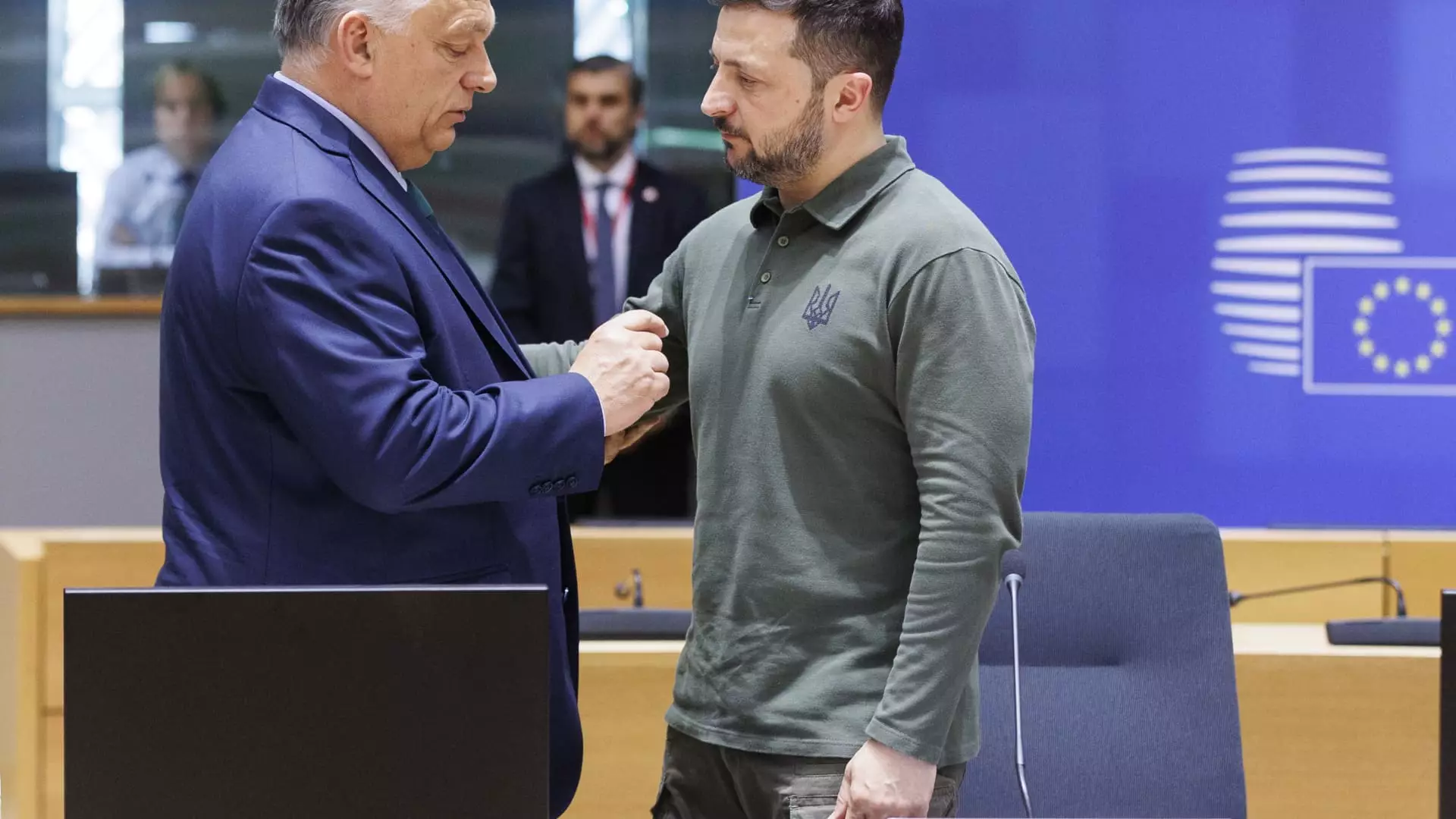On a noteworthy Tuesday, Hungarian Prime Minister Viktor Orban made headlines as he ventured into Ukraine, marking his inaugural wartime visit to a country beset by conflict. This high-profile visit underscores the delicate dynamics of European geopolitics, particularly given Orban’s reputation as a prominent ally of Russia within the European Union and his critical stance against NATO’s extensive support for Ukraine. The backdrop of this encounter is rich with historical tensions, unresolved disputes, and pressing questions about peace and cooperation in a tumultuous region.
As Orban met with Ukrainian President Volodymyr Zelenskyy, the discussions went beyond mere pleasantries. According to Andriy Yermak, a key figure in Zelenskyy’s administration, a “significant conversation” was expected about Europe’s future security, international law, and what was described as the “Peace Formula.” Orban’s government expressed a desire to rejuvenate relations with Ukraine through a bilateral cooperation agreement—a gesture that signals Hungary’s strategic pivot while simultaneously fostering a more cooperative atmosphere amid ongoing tensions. He even advocated for a swift cease-fire, aimed at jump-starting stalled peace talks, indicating an urgency that aligns with Hungary’s broader interests in regional stability.
However, this overture serves as a double-edged sword. The Hungarian prime minister’s long-standing reluctance to support Ukraine militarily and his skepticism towards deeper NATO involvement reflect a profound geopolitical balancing act. By not blocking NATO initiatives while also refraining from providing military aid, Orban positions himself as a “peacemaker” while maintaining his country’s particular political narrative.
Zelenskyy’s 10-point peace framework, first unveiled in November 2022, reflects Ukraine’s solid attempt to create a blueprint for stability, though both sides remain entrenched in their positions. Notably, President Putin has also articulated his own terms for discussions, creating a complex landscape where diplomacy is fraught with obstacles. Orban’s advocacy for a cease-fire could be interpreted as an attempt to maneuver between the two conflicting sides while positioning Hungary as a mediator, though skepticism remains regarding the viability of such efforts without a commitment from either side to roam from their entrenched stances.
The backdrop to this diplomatic dialogue is the European Union’s recent decision to initiate membership discussions with both Ukraine and Moldova, highlighting a potential shift in the European political landscape. Yet, the path to EU integration is laden with challenges, and Orban’s previous dissent against EU aid to Ukraine casts a shadow on Hungary’s role as a cooperative neighbor.
A crucial aspect of the visit is the long-term issue regarding the rights of Hungary’s ethnic minority in Ukraine, particularly in the Zakarpattia region. Orban has voiced concerns over Ukraine’s treatment of this minority, hinting that Hungary’s approval for Ukraine’s EU ambitions might depend on addressing these grievances**. The recent amendments allowing greater linguistic freedom in educational institutions represent a cautious step towards easing these tensions, but further action is necessary to ensure a lasting resolution.
Orban’s administration has leveraged these ethnic concerns as a bargaining chip in international dialogues, a tactic that raises the stakes for Ukraine. His posture could complicate Ukraine’s aspirations for EU integration, demonstrating how the nuances of ethnic politics are woven into broader diplomatic maneuvers.
As Viktor Orban steps into a role that straddles the lines of diplomacy, nationalism, and ethnic politics, the implications of his visit resonate strongly across the region. While the immediate outcome could well be framed as a step towards improved Hungarian-Ukrainian relations, the broader questions about EU solidarity, military support for Ukraine, and the rights of ethnic minorities remain at play. Ultimately, Orban’s diplomatic strategy reflects both the challenges he faces at home and the delicate balance of power that characterizes contemporary European affairs. The stakes for peace in Ukraine and harmony in Eastern Europe hinge on how effectively leaders like Orban can navigate this intricate web of interests—where historical grievances, national ambitions, and geopolitical realities intertwine.


Leave a Reply